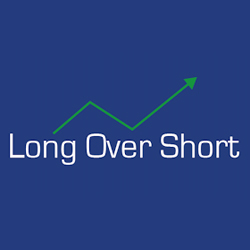Looking at some of my recent newsletters you may be getting the impression that you need to be a top-notch professional investor to out-perform the market. After all, you are required to be intensely curious about business, economics and world affairs, and be familiar with key accounting tools, finance, corporate strategy, and so on. And then you need to apply yourself to a pretty deep analysis of a company.

How can a non-professional person manage all that?
Well, curiosity about business, economics and world affairs is surely part and parcel of being a generally intelligent switched-on person. It doesn’t require exceptional knowledge just a good grounding combined with a determination to keep learning more every day.
Likewise, your knowledge and use of the tools of accounting, etc., will grow if you are genuinely interested in understanding companies and how they tick. It should not be too onerous if you genuinely believe that businesses, their models, the customer-supplier relationships and the rationality of managers are fascinating topics to ponder.
If you don’t think like this, if you don’t, and never have, taken an interest in how businesses are run and what makes for success or failure, then perhaps investment is not for you.
But if you are here, reading this, the chances are you do have this interest, and you want to keep developing yourself by learning new things every day.
For you investment success is at least as likely as it is for the “professional” investor. After all, the so-called professional starts off with a number of disadvantages, for example,
(1) they are only allowed to invest in one-half of the companies on the stock market and so miss many bargains in smaller companies (the liquidity fetish)
(2) they tend to diversify beyond the rational level, leading to, firstly, moving too far down the marginal attractiveness curve (why invest in company number 50 on your list when you could put more into companies 1 to 15) and, second, because they handle so many companies they never get to know any of them very well.
(3) they are susceptible to group-think (example: 18 months ago it was fashionable to say inflation was transitory and would not bother the stock market. As you know, I took a different view and moved to 40% cash in anticipation of inflation, raised interest rates and falling share prices, so 2022 was a very good year for me).
But it’s still a daunting prospect for the average small amateur investor, I know.
One way of taking the pressure off yourself is to avoid analysing sectors that are very difficult. There are plenty of good companies in sectors that are either inherently easy to understand (we’re all familiar with them and there is little change from one decade to the next in terms of competitive dynamics) or in sectors where you have some specialised knowledge.
Perhaps you are/were an engineer and can understand engineering companies better than most, or you are/were a doctor and so find it relatively straightforward to follow medical instrument or pharma companies.
Remember: there are no extra points in investing for taking on extra difficulty, unlike in Olympic diving.
Peter Lynch, one of the greatest investors who very successfully ran the Magellan fund at Fidelity, had some encouraging words for the non-professional investor:
“It’s a tragedy that the small investor has been convinced by the media: the print media, the radio, the television media that they don’t have a chance. The big institutions with all their computers and all their degrees and all their money have all the edges and it just isn’t true at all.
“When they believe it, they buy stocks for a week, they buy options, they buy the Chile fund this week and next week it’s the Argentina fund. And they get results proportional to that kind of investing. And that’s very bothersome, I think the public can do extremely well in the stock market on their own. I think the fact that institutions dominate the market today is a positive for small investors because institutions push stocks to unusual lows, they push them to unusual highs. For someone that can sit back and have their own opinion and know something about an industry this is a positive; it’s not a negative.” (Peter Lynch 8 October 1994 Lecture to the National Press Club)
Key rule that can be followed by amateurs – KNOW WHAT YOU OWN
Peter Lynch:
“And the single most important thing to me in the stock market, for anyone, is to know what you own. I’m amazed at how many people own stocks, they would not be able to tell you why they own it. They couldn’t say in a minute or less why they own it. Actually, if you really press them down, they’d say, “The reason I own this is the sucker is going up.” And that’s the only reason. “And if you can’t explain to a ten year-old in two minutes or less why you own a stock, you shouldn’t own it.
“I made money in Dunkin’ Donuts. I can understand it. When there was recessions I didn’t have to worry about what was happening. I could go there, and people were still there, I didn’t have to worry about low-priced Korean imports – you know, I could understand it. And you laugh, I made 10 or 15 times my money in Dunkin’ Donuts. Those are the kind of stocks I could understand. If you don’t understand it, it doesn’t work. This is the single biggest principle.” (Peter Lynch 8 October 1994 Lecture to the National Press Club)
Surely you can analyse the modern equivalent of the nascent “Dunkin’ Donuts” without feeling intimidated? Don’t even try to examine the latest computer firm offering SRAM CMOS bipolar RISC floating point data I/O array processor with an optimizing compiler….Even if you thought you understood it, by next year that sector will have moved onto something else equally baffling to us.
Warren Buffett has three (metaphorical) piles of paper on his desk:
The first is a very small pile of companies that he understands and has invested in , the “YES” pile.
The second, much larger pile, is companies he has examined but rejected, the “NO” pile.
The third pile reaches all the way to the ceiling. This is “DON’T KNOW” or “CAN’T UNDERSTAND” pile.
This is the man who has spent 80 years analysing companies and still he says most are beyond his circle of competence!
You simply do not need that many good companies you do understand in a portfolio to do well.
Prof Glen Arnold now offers a Managed Portfolio Service at Henry Spain Investment Services under which clients’ portfolios contain the same shares as his (write to Jackie.Tran@henryspain.co.uk)


 Hot Features
Hot Features














Nice little piece.
I speak as a big investor with BRK.B. I haven’t a clue about any of the companies WB and the late CM have chosen.
The problem with the approach you espouse here is that there is only one company, large or small, which you will ever understand properly: your own.
Dunkin Donuts might have been (or might be) a front for money-laundering fentanyl-trading Mexican gangs. Or it might about to be eclipsed by a much hungrier competitor (see what I did there?). Or Americans might suddenly do something about most of them being morbidly obese.
Or indeed it might have not had any such problems but just might not have done particularly well, for all sorts of reasons.
So no, sorry: the best funds for all investors are passive funds tracking fairly simple indices. Fire and forget. Which doesn’t mean you shouldn’t be keen on diversification. In early 2024 I’m “tilting” a little towards small caps passive indexers. That might be a rubbish decision. Only time will tell. Which companies may or may not be involved is supremely irrelevant.